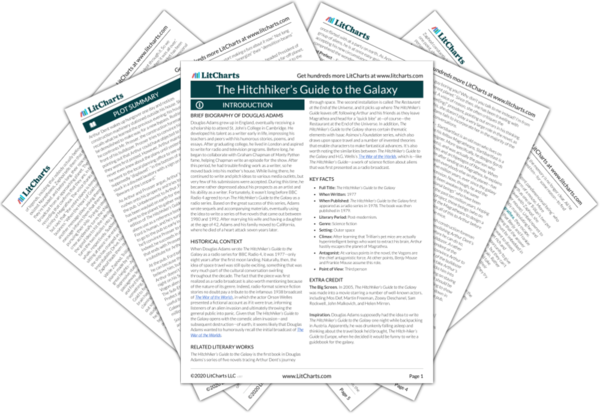Once again, Adams’s penchant for absurd or random humor is apparent, this time showing itself in the form of
The Hitchhiker’s Guide’s warning: “On no account allow a Vogon to read poetry at you.” In addition to reminding readers that this novel is interested in using ridiculous premises to tell a story, this warning portrays language as something that can actually be harmful. Meanwhile, Arthur’s interest in
The Guide showcases his desire to learn more about space, granting him an opportunity to gain knowledge that was inaccessible to him on Earth.
